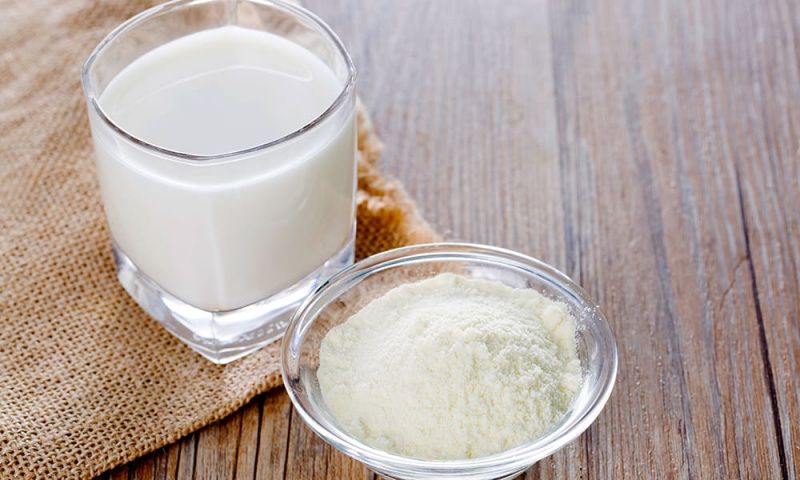Nestlé Enters Weight-Loss Market with Protein-Based Hunger-Curbing Shots
Source: DairyNews.today
Nestlé has launched a new product aimed at the weight-loss market: appetite-suppressing protein shots called Boost Pre-Meal Hunger Support, now available in the United States.

The shots, priced at $10.99 for a four-pack, are sold on Amazon.com and at sel ect CVS stores. Each 45-calorie shot contains 10 grams of whey protein, is fat-free, and includes one gram of sugar. The product is marketed as promoting a “natural GLP-1 response to a meal”, mimicking the effect of popular weight-loss drugs like Wegovy and Zepbound, albeit at a lower intensity.
The protein shot is designed to be consumed up to 30 minutes before a meal and is particularly targeted at individuals taking GLP-1-based medications or other weight-loss aids.
“You get an increase in natural GLP-1, which helps control the feeling of hunger. This dose has a significant effect on satiety,” said Stefan Palzer, Nestlé’s Chief Technology Officer.
Nestlé says the product is formulated with a mix of quickly digested peptides, creating an amino acid spike that curbs appetite. The inclusion of whey protein microgels slows digestion, prolonging the interaction with intestinal receptors that stimulate GLP-1 hormone release.
Scientific Basis
The product builds on findings fr om a 2021 Nestlé study involving 26 participants with type-2 diabetes. The randomized study compared the effects of a low-dose whey protein microgel against a placebo. Participants who consumed the whey protein showed a 22% reduction in glucose levels two hours after a meal, along with a notable increase in GLP-1 hormone levels.
Skepticism fr om Experts
Some experts are cautious about the product’s long-term efficacy.
“I believe this protein shot can help release more GLP-1, but you could potentially achieve a similar effect with a glass of milk,” said Lora Heisler, chair in human nutrition at the Rowett Institute.
Nestlé’s Competitive Edge
The launch of Boost Pre-Meal Hunger Support positions Nestlé as a player in the burgeoning weight-loss market, wh ere demand for GLP-1-based products continues to surge. The company’s approach, combining functional food innovation with scientific validation, highlights its strategy to capture market share in health-conscious consumer segments.
With its focus on appetite control and natural hormone response, Nestlé aims to carve out a niche in the weight-loss industry while leveraging its reputation for nutrition-focused innovation.
The protein shot is designed to be consumed up to 30 minutes before a meal and is particularly targeted at individuals taking GLP-1-based medications or other weight-loss aids.
“You get an increase in natural GLP-1, which helps control the feeling of hunger. This dose has a significant effect on satiety,” said Stefan Palzer, Nestlé’s Chief Technology Officer.
Nestlé says the product is formulated with a mix of quickly digested peptides, creating an amino acid spike that curbs appetite. The inclusion of whey protein microgels slows digestion, prolonging the interaction with intestinal receptors that stimulate GLP-1 hormone release.
Scientific Basis
The product builds on findings fr om a 2021 Nestlé study involving 26 participants with type-2 diabetes. The randomized study compared the effects of a low-dose whey protein microgel against a placebo. Participants who consumed the whey protein showed a 22% reduction in glucose levels two hours after a meal, along with a notable increase in GLP-1 hormone levels.
Skepticism fr om Experts
Some experts are cautious about the product’s long-term efficacy.
“I believe this protein shot can help release more GLP-1, but you could potentially achieve a similar effect with a glass of milk,” said Lora Heisler, chair in human nutrition at the Rowett Institute.
Nestlé’s Competitive Edge
The launch of Boost Pre-Meal Hunger Support positions Nestlé as a player in the burgeoning weight-loss market, wh ere demand for GLP-1-based products continues to surge. The company’s approach, combining functional food innovation with scientific validation, highlights its strategy to capture market share in health-conscious consumer segments.
With its focus on appetite control and natural hormone response, Nestlé aims to carve out a niche in the weight-loss industry while leveraging its reputation for nutrition-focused innovation.









